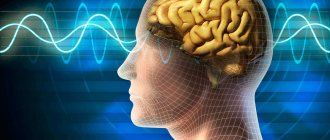In this article
- Definition
- Risk factors
- Signs
- Forms
- Hysteroid syndrome
- Increasing schizoidization syndrome
- Epileptoid syndrome
- Unstable behavior syndrome
- Suicide
- Clinical case
- Diagnostics
- Treatment
- Forecast
Schizophrenia can occur in different ways. One of its forms is called sluggish. It is characterized by a slow course with an unexpressed set of symptoms. It can develop in a patient for years, and he will not suspect any illness. Psychopathic-like schizophrenia was previously considered as a type of sluggish schizophrenia. However, today it is studied within the framework of schizotypal personality disorders. Let's find out what its features are.
Definition
Psychopathic-like schizophrenia is also called pseudopsychopathic (less commonly, psycho-like or pseudoschizophrenia). In the International Classification of Diseases, 9th revision (ICD-9), it was included in category 295.5, that is, it was part of the latent (slightly progressive or sluggish) form of schizophrenia. In ICD-10, this same disease received a new justification, as a result of which it was included in the group of schizotypal personality disorders.
This is due to the fact that the signs of psychopathic-like schizophrenia are not enough to make a more severe diagnosis. It occurs in a milder form and responds well to treatment, although it is chronic. Basically, it affects a person’s behavior and character, but does not lead to the disintegration of personality. Its main feature is the presence of a psychopath-like shade of symptoms.
This means that the patient’s mood changes sharply and there are sudden outbursts of causeless aggression. Common schizophrenia is characterized by a range of more complex symptoms, including hallucinations.
Risk factors
The causes of schizophrenia remain unknown to science. Its psychopathic form is no exception. We can only say that it is an endogenous disorder. However, doctors still identify a number of factors that contribute to the development of pseudopsychopathic schizophrenia. Among them:
- disruption of the functioning of neurotransmitters in the central nervous system;
- brain damage - organic or intoxication;
- hereditary conditioning;
- genetic mutations.
The disorder is most often diagnosed in teenage boys. But the exact risk groups are difficult to determine due to the lack of understanding of the mechanism of disease formation. Scientists only note that there is no connection with family relationships and upbringing.
Signs
The clinical picture is determined by the form of development of psychopathic schizophrenia. The set of symptoms may be different, but typical signs can still be identified. These include:
- cruelty, unmotivated aggression;
- the appearance of strange hobbies;
- antisocial behavior;
- breaking contacts with family and friends;
- loss of interest in favorite activities;
- poor relationship with parents;
- isolation, desire for loneliness;
- grandiose ideas of religious or philosophical content;
- tendency to use alcohol and drugs.
The listed symptoms can hardly be called specific. They may indicate a bad upbringing, a difficult character, the influence of antisocial personalities on a person, etc.
However, with the development of pseudopsychopathic schizophrenia, such changes in behavior are striking, since before this the person was completely different. He can grow up in a prosperous family, study well and play sports, but at some point he begins to change for the worse for no apparent reason. In such cases, they usually say that the person “seems to have been replaced.”
What is psychopathic-like syndrome?
Psychopathic-like syndrome is a mental disorder in which there is a desire to assert oneself in any way, cruelty towards others, infantilism and tendencies towards kleptomania. Occurs in childhood and adolescence.
✔️ Boys and girls with this syndrome are addicted to alcohol and drugs and experience increased sexual desire.
✔️ Those suffering from this disease often have a negative reaction to generally accepted standards of morality and communication. They ignore moral values. In relation to close people, rudeness, aggression, and arrogance are manifested. Usually a person loses the ability to socialize, does not work and does not study.
✔️ In most cases, patients descend to a marginal state and become dependents. They choose their social circle from their own kind, use drugs, alcohol, run away from home and have promiscuous sex.
Until recently, this condition was not properly diagnosed. This is why many of those with this disease end up behind bars.
This disease was first diagnosed at the end of the 19th century. It was then that doctors became interested in psychopathy. Some patients showed changes in behavior, as a result of which they could not correlate their needs and real possibilities. This feature prompted them to conflicts with others - relatives, neighbors, friends. Those around them perceived this behavior with bewilderment and considered sick people strange and unpleasant.
At the beginning of the 20th century, issues of psychopathy were dealt with more deeply. Then the difference between a psychopath and a person with a psychopathic syndrome was revealed. In the first case, we are talking about a specific person, in the second, it is a symptom of a disease. Those suffering from the syndrome have distorted boundaries of humanity; they often commit acts directed against society.
Forms
The list of symptoms above shows that psychopathic-like schizophrenia is not easily differentiated from other disorders and conditions that may not be associated with psychopathic disorders. To make the diagnosis easier, doctors have identified 4 forms of pseudopsychopathic schizophrenia. They are called syndromes - hysterical, increasing schizoidization, epileptoid and unstable behavior.
Hysteroid syndrome
The hysteroid form is more often detected in women who previously had hysteroid character accentuation. Typically, such individuals crave to be the center of attention. They are characterized by egocentrism, fear of being in an awkward situation, demonstrative behavior, etc. With the development of schizophrenia, the following signs are observed:
- theatricality;
- pretentiousness;
- tendency to lie;
- antics;
- coldness towards loved ones;
- selfishness;
- sudden mood swings;
- ridiculous statements;
- cruelty.
These symptoms become especially noticeable against the background of complete well-being. They inevitably become the cause of conflicts with others, including loved ones who do not understand how to further interact with the person.
In boys, hysteroid syndrome with psychopathic schizophrenia is observed only in 5% of cases.
Hysterical behavior becomes stereotypical. The patient often plays a role without noticing that everyone is laughing at him.
Increasing schizoidization syndrome
The schizoid type of disorder is characterized by such symptoms as:
- isolation;
- interruption of social contacts;
- emotionlessness;
- skipping school or work;
- unusual hobbies;
- pretentiousness of behavior and appearance.
The patient becomes embittered. He criticizes everything and wants to abstract himself from society; he develops strange hobbies, such as picking up animal excrement or fingernails. He may watch the same movie all day long or do unusual physical exercises. If they make comments to him or prevent him from behaving in this way, he snaps. At the same time, the patient may not even understand the topic that he is passionate about.
Such teenagers often run away from home, without any conflict with their relatives. An exemplary student may suddenly start drinking alcohol or become addicted to smoking. However, alcoholism and drug addiction rarely develop with this syndrome.
Epileptoid syndrome
This form of psychopathic schizophrenia is the most dangerous for others, since its typical symptom is outbursts of aggression. Main features:
- coldness and cruelty;
- sudden outbursts of anger;
- loss of disgust;
- unmotivated attacks on people and animals;
- eating inedible objects;
- sexual disorders;
- tendency towards hypochondria.
Such patients are very suspicious. They do not trust either his relatives or the doctor who is treating him, which significantly complicates his treatment.
The patient is very cruel, and the cruelty is savage, terrible and absurd. He either cannot explain the reason for his action, or gives stupid arguments.
It is worth noting that this syndrome is not characterized by boiling anger leading to an explosion. The patient is embittered almost constantly.
Unstable behavior syndrome
Unstable behavior in pseudopsychopathic schizophrenia is also more common in men, and is characterized by the following symptoms:
- inactivity;
- alcohol and drug abuse;
- sexual behavior disorders;
- indifference to friends and relatives;
- constant protests are usually illogical.
The syndrome of unstable behavior is similar to the hebephrenic form of schizophrenia and heboid syndrome, but no serious personality destruction is observed. Often, such patients, especially teenagers, are at home less often, associate with antisocial people, drink, smoke and commit crimes, including sexual ones. At the same time, emotional detachment and disinterest can be traced in all their actions.
Sexual deviations are especially unusual in this syndrome. They are not limited to the typical signs that are characteristic of other psychopathy - transient homosexuality, promiscuity and early sexual activity. A teenager with unstable behavior syndrome may call on his own mother for intimacy and cohabitation.
TREATMENT OF PSYCHOPATHO-LIKE FORMS OF SCHIZOPHRENIA
Psychopathic-like form of schizophrenia (other names: pseudopsychopathic schizophrenia, psychopathic-like form of schizotypal disorder) is a type of schizotypal disorder that is accompanied by psychopathic symptoms, for example, pathological cravings, mood swings, outbursts of aggression, obsessive-compulsive disorder, etc.
Schizophrenic productive symptoms in this type of disorder in the form of delusions or hallucinations appear infrequently; the disease itself develops over a long period of time, gradually, so it is often classified as sluggish schizophrenia. With timely detection and adequate treatment, doctors give a good prognosis and manage to achieve stable remission.
The reasons for the development of this form of schizophrenia are currently considered to be endogenous factors, such as intoxication damage to the central nervous system, an imbalance of chemical compounds in the body, causing disturbances in the metabolism of proteins such as serotonin, dopamine, acetylcholine, organic brain diseases, a history of epilepsy, and heredity.
The disease often begins to manifest itself in adolescence, just when young people begin to experience the effects of various toxic substances: alcohol, drugs, etc. The main danger is that, against the background of pubertal personality changes, the first signs of the manifestation of a psychopathic form schizophrenia can be ignored and attributed to difficult adolescence.
However, an attentive and informed parent will pay attention to possible symptoms of a psychopathic form of schizophrenia, which can manifest itself:
- in anger, aggression, irritability, previously unusual for a person, sometimes even cruelty, rage;
- low empathy or its complete absence, and in relation not only to people, but also to animals;
- propensities for deviant antisocial behavior: causing intentional harm, the desire to intentionally offend, etc.
- the appearance of strange, pathologically abnormal hobbies and interests, inadequate sexual activity;
- neglect of personal hygiene, appearance,
- gradual loss of social connections with peers, the emergence of new strange acquaintances;
- With the gradual loss of all interest in his former life, people, hobbies, even new ones, the teenager completely withdraws into himself.
Signs of a psychopathic form of schizophrenia appear suddenly; neither the atmosphere in the home, nor relationships with parents or peers, nor traumatic events are conducive to this. To the point that teenagers from prosperous families who had a happy childhood can suffer from this form of mental disorder.
Treatment of psychopathic-like forms of schizophrenia should proceed under the supervision of a qualified psychiatrist. Therapy for any such disorders is always a complex intervention, and the treatment regimen is selected based on the severity of the manifestation of schizophrenic and psychopathic symptoms.
The ROSA Clinic in Moscow is one of the few private psychiatric clinics that treats all types of schizophrenia and disorders, placing patients in its own hospital. Here are just a few reasons to choose our clinic:
- We accept and visit patients of any severity , including violent ones, those with suicidal tendencies, those who refuse treatment, we know how to persuade and accept patients for compulsory treatment;
- We have our own comfortable hospital , where the cost of stay includes everything that is necessary for full treatment and rehabilitation. We also use outpatient treatment, day and evening hospital;
- Treatment is carried out anonymously, confidentially , without registration with the PND, which allows a person who will experience stable remission to not have any restrictions associated with this;
- The treatment regimen for psychopathic-like forms of schizophrenia includes all modern techniques that have proven their effectiveness: psychotherapy, drug therapy, rehabilitation, physiotherapy, work with relatives, etc.
Suicide
Suicidal tendencies in psychopathic schizophrenia are observed in 41% of patients. In this case we are talking primarily about teenagers. But often everything is limited by thoughts. No action is taken. Moreover, many patients do not even tell anyone about them at the moment they appear in their heads. They find out about this later, when the attack passes and the teenager shares his thoughts with doctors.
Patients say that they are visited by the idea of entrusting their fate to chance, to fate. For example, a teenager is standing at a metro station waiting for a train. Suddenly the idea comes to his mind to throw himself under the rails, but at the same time he decides that he will do this only if there is an even number on the scoreboard.
Sometimes suicidal feelings are combined with harshness towards oneself, which is meaningless. The patient can completely undress and lie down in a snowdrift to freeze, or put something heavy on his throat, etc. Often such attempts to die are thwarted by relatives or those who happen to be nearby.
Causes of the disease
Today, there are many hypotheses explaining the pathogenetic mechanisms of the development of pathology. The most likely theory is the genetic one.
Important! You cannot “get sick” of psychopathic-like schizophrenia - it is a congenital pathology.
The risk of the disease increases under the influence of factors that provoke defects in the intrauterine development of the central nervous system of the fetus. These may be some viral infections suffered by a woman in the first half of pregnancy, exposure to toxins (industrial or household poisons, nicotine, ethyl alcohol, drugs), side effects of certain medications. Factors such as:
- late first pregnancy;
- chronic diseases in the expectant mother;
- gestosis;
- placental insufficiency;
- polyhydramnios;
- multiple pregnancy, etc.
Clinical case
The disease manifested itself 5 years ago. During this period, the patient was hospitalized in a psychiatric hospital twice. Each time - for 1-2 months. Before this, he demonstrated inappropriate behavior, annoyed people with conversations about the meaning of life, shirked work, said that he was writing a book and plans to change the world. He was constantly in conflict with his relatives, and in the hospital he was florid and showed exaggerated swagger.
Hallucinations and delusions are absent in psychopathic schizophrenia, which distinguishes it from other forms of schizophrenic disorders.
After treatment with pills, he became collected. He could work in low-skilled jobs, but had a penchant for alcohol, believing that alcohol helps to gain inner freedom and looseness. The likelihood of relapse remained high.
Clinical manifestations of psychopathic-like schizophrenia
At the initial stage of the disease, attention is paid to certain personality changes. A person begins to “withdraw into himself”, becomes withdrawn, and finds it extremely difficult to establish and maintain interpersonal relationships. They note pronounced emotional discomfort when it is necessary to communicate with other people. The patient strives for social isolation, prefers work (often low-paid and unprestigious), which involves monotonous activity alone.
The ability to experience any experiences and pain decreases. However, this is not classic anhedonia, in which a person lacks any emotions at all. With psychopathic-like schizophrenia, the patient can gain satisfaction by doing what he loves or does his hobby.
Thinking disorders are noted: it is devoid of concreteness, often divorced from reality and is subject to internal experiences (this phenomenon is called “autistic thinking”). This also manifests itself in speech disorders: the patient may suddenly become silent, unexpectedly jump from topic to topic. Lengthy discussions on abstract topics are typical; sometimes against this background delusional ideas arise with the plot of their own uniqueness and perfection.
Trying to improve his well-being, the patient often resorts to alternative medicine, a not entirely adequate diet and regimen, and physical activity that is inappropriate to either his condition or preparation.
Advanced stage of psychopathic-like schizophrenia
Epileptoid syndrome gradually develops, which is characterized by the following symptoms:
- unmotivated affective attacks, accompanied either by total apathy, or by inadequate outbursts of anger, anxiety and happiness that do not correspond to the situation;
- episodes of gloomy, melancholy, depressive mood without visible changes in behavior;
- causeless cruelty, coldness, indifference, attacks of aggression towards loved ones;
- sometimes there is a sexual connotation in relationships with relatives, but since sexual desire cannot be realized for constant reasons, in sex with the opposite sex they prefer harshness, even sadism and violence;
- lack of personal hygiene, although some patients carefully monitor the cleanliness of their clothes and housing;
- auto-aggression.
Depersonalization/derealization syndrome often occurs. The patient has a changed perception of his own “I”, his body, movements, speech, actions, the surrounding world - everything seems alien and artificial.
In psychopathic-like schizophrenia, the formation of delusions is possible, but their content is usually not associated with persecution mania. Typical plots are ideas of relationship, mastery. The process of thinking is also interpreted in a special way. It seems to a person that he perceives or transmits thoughts at a distance, and has the gift of telepathy and prediction.
Also characterized by a pathological concentration on philosophical, esoteric, religious, metaphysical ideas. Sometimes, on this basis, a kind of rituals are gradually formed to “cleanse” one’s own home, aura, ideas about various symbols that portend either something good, or, which happens much more often, some kind of catastrophe.
After the first exacerbation, a long-term, 5-6-year remission is possible, then attacks are repeated more often, but with psychopathic schizophrenia they are not so acute. To a greater extent, it is characterized by a sluggish but continuous course with the gradual development of a deficit of thinking and intelligence.
Diagnostics
Examination for such disorders is carried out in the presence of a guardian, since patients are often minors.
Subsequently, there will be individual conversations with a psychologist and psychotherapist. In general, diagnostics comes down to the following activities:
- Collection of complaints from the patient and others.
- Studying the medical history from childhood (data about relatives may also be required, since the disorder is usually genetically determined).
- Physical examination necessary to exclude pathologies of the central nervous system and internal organs. In addition, the doctor must make sure that there are no injection marks on the patient’s body. This eliminates drug addiction.
- Experimental psychological examination, including all kinds of tests.
- Clinical and laboratory diagnostics (tests, MRI, CT, EEG, ECG, etc.).
If necessary, specialists of related professions are involved.
Treatment
Treatment is selected individually. Symptoms of anxiety or aggression can be relieved with the help of drugs - antipsychotics, antidepressants, tranquilizers and mood stabilizers. However, psychotherapeutic sessions - individual and group - are crucial. First, the patient is put into a state of remission, and then taught to live so that the attack does not recur.
For mild cases of the disorder, most treatment is carried out on an outpatient basis. If the patient is dangerous to himself and others, he is left in the hospital. While the patient is being treated, his relatives consult with a psychiatrist. They will have to learn how to communicate correctly with a person with a mental disorder. First of all, they should admit that their loved one is sick, and not just “lost” or “contacted with bad company.”
Forecast
The disease has a chronic course, but in most cases the prognosis is favorable. During the period of remission, a person returns to his normal life. Outwardly, including in behavior, he will be no different from the others. He will just have to engage in prevention and adhere to the recommendations of a psychiatrist.
First of all, you should give up alcohol and other psychoactive substances. If necessary, you need to take medications in the dosage determined by the doctor. At the first signs of exacerbation, you should immediately see a doctor, and not wait until the patient again needs to be forcibly hospitalized.
Symptoms and diagnosis of psychopathic schizophrenia
In psychopathic-like schizophrenia, the patient does not complain of voices in the head or hallucinations, the main cause of concern is the patient's behavior.
Main symptoms:
- aggressiveness;
- ruthlessness;
- unreasonable anger;
- antisocial behavior;
- alcohol and drug abuse.
A person (usually a teenager) loses social connections, does not build traditional family and friendships, but easily comes into superficial contact with strangers. Tends to make grandiose, unrealizable plans, while being unable to achieve even simple, everyday goals. All this is accompanied by an impoverishment of the emotional sphere (coldness, callousness) and a gradual loss of vitality.
Important
The reason for the inappropriate behavior of a person or an adult is not “bad company”, but a disease. Accordingly, you need to fight it with the help of medications and psychotherapy.
Despite a prosperous childhood, the teenager begins to conflict with his family, leaves home, and acquires strange hobbies. Often parents make a mistake and try to correct the situation using pedagogical methods: they lock them at home, send them to a closed school, and forbid them to communicate with “bad company.” But pseudopsychopathic schizophrenia does not depend on external factors; such measures do not bring lasting results. Symptom relief can only be achieved with the help of a well-chosen therapy regimen.
Diagnosis of psychopathic schizophrenia is based on clinical and anamnestic methods (identification of symptoms by a psychiatrist). The diagnosis is confirmed with the help of a clinical psychologist, laboratory and instrumental studies (Neurotest, Neurophysiological test system).
The course of the disease depends on various factors, but the prognosis in most cases is favorable. However, if the process is started and not treated, then the person will face severe psychopathic-like disorders with social maladjustment, alcoholism, drug addiction, loss of performance, and antisocial behavior.










